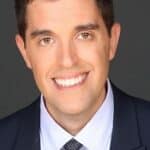
Echoes of War: First Israeli Strike on Beirut Since Ceasefire Rekindles Old Fears
As Israel vowed to respond to any strike on northern communities, Beirut residents scrambled to evacuate, reviving memories of last year’s devastation
By Taylor Thomas / The Media Line
[Beirut] Although the ceasefire declared between Israel and Lebanon in November 2024 is technically ongoing, actions on the ground in southern Beirut and northern Israel seem to indicate a return to war. On Friday morning, two rockets were launched from Lebanese territory toward northern Israel, one of which failed to cross the border. Israel responded with artillery fire against various towns in southern Lebanon. Just one day earlier, Israeli attacks killed six people.
“There will be no peace in Beirut” if attacks continue on northern Israel, Defense Minister Israel Katz warned on Friday. Hours later, the Lebanese capital was once again the scene of bombing.
Avichay Adraee, the Israeli military’s Arabic language spokesperson, posted on X warning those in some areas of Beirut’s southern suburbs to evacuate. “You are present near facilities belonging to Hezbollah,” he wrote. “For your safety and that of your families, you are obliged to evacuate these buildings immediately and move away from them at a distance of no less than 300 meters.”
That was the same manner in which the Israeli military warned of imminent attacks on southern Beirut and areas in southern and eastern Lebanon for two long months last fall. Often, there was no direct warning about the upcoming strikes.
But that violence came to an end on November 27, 2024. At 3:59 a.m., just one minute before the ceasefire was going to take effect, Israel launched a wave of airstrikes against the south of the Lebanese capital. In the months since, hundreds of families have been able to return to the rubble of their homes in peace.
Ali Hijazi, a resident of the southern Beirut suburb of Dahiyeh, recounted urging his mother to evacuate before their area was attacked. His mother, Hijazi told The Media Line, resisted at first, insisting that life in Dahiyeh had returned to normal.
Finally, after pushing his family, they left the area just hours before the bombing that resulted in the collapse of the building and the hospitalization of one seriously injured person.
“It is a protective instinct I have learned to have since the beginning of this war,” Hijazi said.
The announcement of forthcoming strikes unleashed chaos and panic in the capital’s suburbs. Several schools were in session near the building Israel threatened to strike, resulting in attempted evacuations in the less than 30 minutes between the announcement and the drone strike.
During the war, attacks in the southern suburbs were carried out by Israeli warplanes, not drones. Throughout Friday, Israeli drones continued to fly over Beirut.
“Whoever has not yet internalized the new situation in Lebanon has received an additional reminder of our determination,” Israeli Prime Minister Benjamin Netanyahu said on Friday after the strike. “The equation has changed. What prevailed before October 7 will not recur. We will not allow firing at our communities, not even a trickle. We will continue to strongly enforce the ceasefire. We will attack anywhere in Lebanon against any threat to the state of Israel.”
The Israeli military said that the target of the attack was a “drone storage facility for Hezbollah’s 127th Air Unit.” In a post on X, the military said that the rocket fire at northern Israel that preceded the Israeli strike was “a flagrant violation” of the ceasefire agreement, stressing that “the Lebanese state has the responsibility to enforce the agreement.”
In a press conference in Paris on Friday with his counterpart Emmanuel Macron, Lebanese President Joseph Aoun stated that Hezbollah seemed not to be responsible for the two rockets fired toward Israel. “The origin of these shots will be investigated,” he added.
Macron described the attack as an unacceptable violation of the ceasefire. “These attacks play into Hezbollah’s hands,” he said after his meeting with Aoun.
The French president said he would discuss the attack with his US counterpart Donald Trump “in the coming hours” and with Israeli Prime Minister Benjamin Netanyahu within two days.
Defense Minister Katz warned Lebanon that attacks would continue unless the Lebanese government reins in attacks on Israel. “For any attempt to harm the Galilee communities, the roofs of the houses in Beirut’s southern suburb will shake,” he wrote.
Lebanese Prime Minister Nawaf Salam condemned the attacks, which he said targeted “civilians and residential areas housing schools and universities.” He insisted on “the need to end Israel’s continued violations of the ceasefire agreements and the urgent need for the complete withdrawal of the Israeli positions still occupied in southern Lebanon.”
Salam also demanded that the Lebanese military promptly arrest those responsible for the rocket fire.
Friday marked the second time that rockets have been fired from Lebanon into Israeli territory since the ceasefire took effect. The first was last Saturday. In both cases, Hezbollah has strongly denied any involvement in the attacks and reaffirmed its commitment to the ceasefire agreement.
French and Lebanese authorities have accused Israel of violating the ceasefire hundreds of times. More than 116 Lebanese have been killed by Israel since it took effect and villages have been razed.
Israel also continues to occupy five strategic points in the south of the country, in violation of the agreement that stipulated their complete withdrawal. Many strikes have taken place in these areas and in the eastern Beqaa Valley.
Israeli officials have said that they intend for Israel to maintain total freedom of military action in Lebanon.
Abdallah Khoury, a Lebanese political expert, told The Media Line that Hezbollah’s ability to respond to continued Israeli strikes is “very limited.”
“On top of the surrender agreement that was the ceasefire, the Israelis and the Americans have come to a side agreement allowing Israel to continue to strike in Lebanon, so, in every way, this is a defeat for Hezbollah,” Khoury said.
Brought to you by www.srnnews.com


























